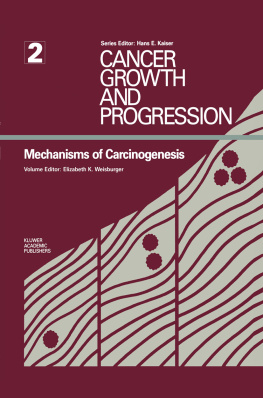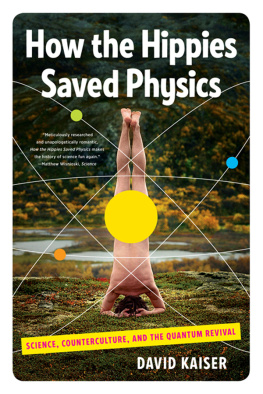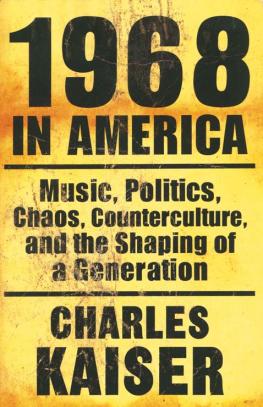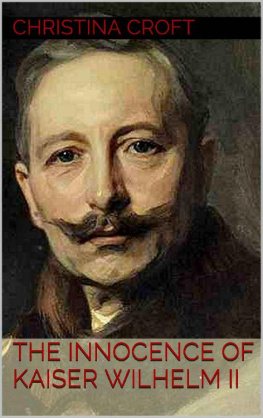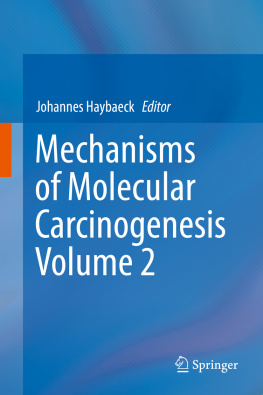Kaiser - Mechanisms of Carcinogenesis
Here you can read online Kaiser - Mechanisms of Carcinogenesis full text of the book (entire story) in english for free. Download pdf and epub, get meaning, cover and reviews about this ebook. year: 2014, publisher: Springer-Verlag Wien, genre: Romance novel. Description of the work, (preface) as well as reviews are available. Best literature library LitArk.com created for fans of good reading and offers a wide selection of genres:
Romance novel
Science fiction
Adventure
Detective
Science
History
Home and family
Prose
Art
Politics
Computer
Non-fiction
Religion
Business
Children
Humor
Choose a favorite category and find really read worthwhile books. Enjoy immersion in the world of imagination, feel the emotions of the characters or learn something new for yourself, make an fascinating discovery.
- Book:Mechanisms of Carcinogenesis
- Author:
- Publisher:Springer-Verlag Wien
- Genre:
- Year:2014
- Rating:3 / 5
- Favourites:Add to favourites
- Your mark:
- 60
- 1
- 2
- 3
- 4
- 5
Mechanisms of Carcinogenesis: summary, description and annotation
We offer to read an annotation, description, summary or preface (depends on what the author of the book "Mechanisms of Carcinogenesis" wrote himself). If you haven't found the necessary information about the book — write in the comments, we will try to find it.
Mechanisms of Carcinogenesis — read online for free the complete book (whole text) full work
Below is the text of the book, divided by pages. System saving the place of the last page read, allows you to conveniently read the book "Mechanisms of Carcinogenesis" online for free, without having to search again every time where you left off. Put a bookmark, and you can go to the page where you finished reading at any time.
Font size:
Interval:
Bookmark:
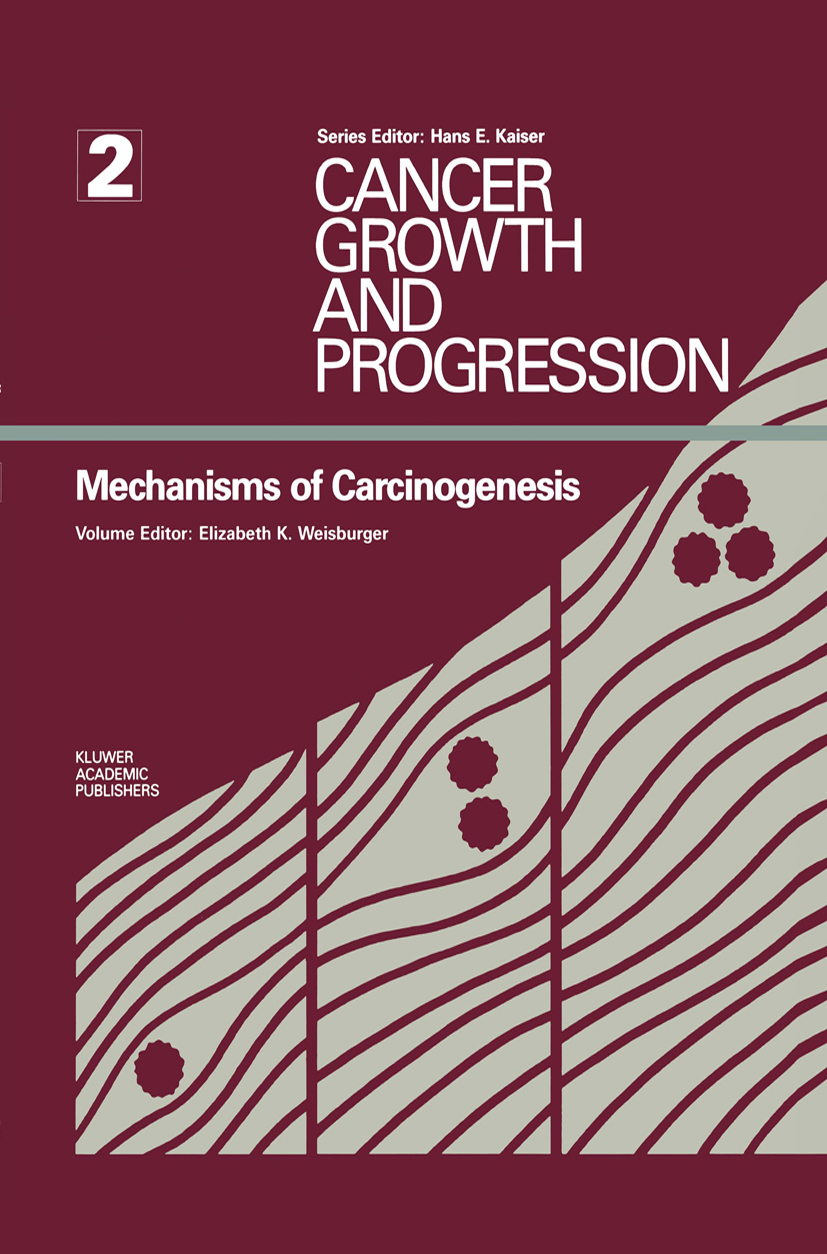
Hans E. Kaiser
Elizabeth K. Weisburger
Carleton University
Ottawa, Ontario, KLS 5B6
Canada
National Cancer Institute/
National Institutes of Health
Bethesda
Maryland 20892, USA
Pfizer Central Research
Eastern Point Road
Croton
Connecticut 06340, USA
University of Nebraska
Medical Center
42nd and Dewey Avenue
Omaha
Nebraska 68105, USA
National Cancer Institute/
National Institutes of Bethesda
Maryland 20892, USA
School of Medicine
University of Maryland
10 S. Pine Street
Baltimore
Maryland 21201, USA
Rhode Island Department of Health
Office of Health Statistics
Cannon Building 75 Davis Street
Providence, RI 02908-509
and Department of Community Health
Brown University
Providence
Rhode Island 02902, USA
Virology Section
Box 79
University of Texas
M.D. Anderson Hospital and Tumor Institute
6723 Bertner Ave.
Houston
Texas 77030, USA
230 Lothrop St.
Pittsburgh
Pennsylvania 15213-2592
USA and Department of Pathology
University of Pittsburg
School of Medicine
Pfizer Central Research
Eastern Point Road
Croton
Connecticut 06340, USA
MacAlester College
1600 Grand Ave.
St. Paul
Minnesota 55105, USA
Queens University
Kingston, Ontario K7L3N6
Canada
National Institutes of Health
Bethesda
Maryland 20892, USA
University of Nebraska Medical Center
42nd and Dewey Avenue
Omaha
Nebraska 68105, USA
University of Maryland
10 S. Pine Street
Baltimore
Maryland, 21201, USA
The Johns Hopkins School of Public Health
The Johns Hopkins University
Baltimore
Maryland 21218, USA
Municipal Hospitals of Kassel
Moenchebergstr. 41/43
35 Kassel, FRG
*deceased November 5, 1985
University of Erlangen-Nuremberg
852 Erlangen
Egerlandstrass 3, FRG
National Cancer Institute/
National Institutes of Health
Bethesda
Maryland 20892, USA
National Institutes of Health
Bethesda
Maryland 20892, USA
Chemistry University Erlangen-Nuremberg
852 Erlangen
Egerlandstr. 3, FRG
University of Maryland
School of Medicine
10 S. Pine Street
Baltimore
Maryland 21201, USA
National Cancer Institure/
National Institutes of Health
Bethesda
Maryland 20892, USA
at the Netherlands Cancer Institute
Plasmanlaan 121
Amsterdam
The Netherlands
National Cancer Institute/
National Institutes of Health
Bethesda
Maryland 20892, USA
Font size:
Interval:
Bookmark:
Similar books «Mechanisms of Carcinogenesis»
Look at similar books to Mechanisms of Carcinogenesis. We have selected literature similar in name and meaning in the hope of providing readers with more options to find new, interesting, not yet read works.
Discussion, reviews of the book Mechanisms of Carcinogenesis and just readers' own opinions. Leave your comments, write what you think about the work, its meaning or the main characters. Specify what exactly you liked and what you didn't like, and why you think so.

